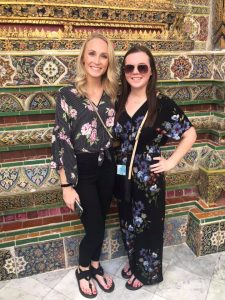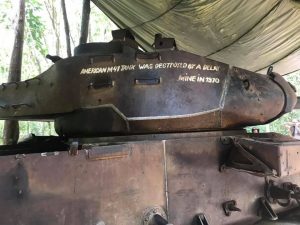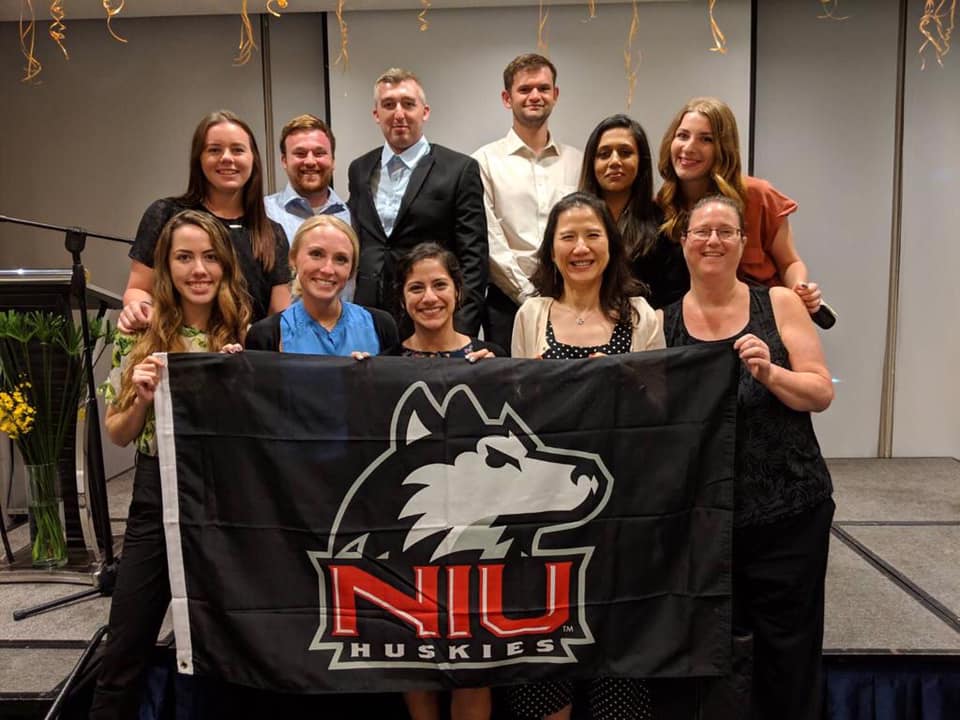Apply for scholarships!
 A trip abroad can sound very appealing. However, the price tag of the trip can be quite daunting. That’s what I thought when I first looked into studying abroad in SE Asia with IBS. I’m already paying tuition- how could I possibly afford a trip to Asia? The first step I took to find out the information was a trip to my school’s study abroad office. When I told them I was looking at an IBS program, it helped to streamline the process since I already knew what program I was searching for. Then, since I am a graduate student, we looked at different types of aid I could apply for that would help ease the burden of the cost of the trip. I exhausted every possibility of financial assistance to leave myself in the best position possible, while also knowing I tried my very hardest to cover the cost of the trip. I started by browsing the IBS website and reading blogs similar to mine to see what others did to help pay for their trips. I had been getting some emails from IBS about potential scholarships and decided to look into those to see if I qualified for any of them. After exhausting my options through IBS, I looked at what NIU, my school, could offer in scholarships and grants.
A trip abroad can sound very appealing. However, the price tag of the trip can be quite daunting. That’s what I thought when I first looked into studying abroad in SE Asia with IBS. I’m already paying tuition- how could I possibly afford a trip to Asia? The first step I took to find out the information was a trip to my school’s study abroad office. When I told them I was looking at an IBS program, it helped to streamline the process since I already knew what program I was searching for. Then, since I am a graduate student, we looked at different types of aid I could apply for that would help ease the burden of the cost of the trip. I exhausted every possibility of financial assistance to leave myself in the best position possible, while also knowing I tried my very hardest to cover the cost of the trip. I started by browsing the IBS website and reading blogs similar to mine to see what others did to help pay for their trips. I had been getting some emails from IBS about potential scholarships and decided to look into those to see if I qualified for any of them. After exhausting my options through IBS, I looked at what NIU, my school, could offer in scholarships and grants.
I applied for every scholarship I was qualified for and spoke directly to those in charge of the trip with any concerns I had. A benefit that NIU was able to offer me was to enroll in the school’s payment plan. This way, I could break the cost of the trip that wasn’t covered into smaller, more reasonable payments. Both IBS and NIU were very helpful and upfront about when I would receive scholarships, what I can expect to be paying, and when I can expect to pay it by.
Budget! Budget! Budget!
 Besides the actual cost of the trip, it was important to budget what I was going to spend in each country, what kind of cell phone plan I was going to have, estimate the cost of things I was going to need to buy before I left the country (a visa for Vietnam, a converter/adapter for the voltage difference, any vaccines that my insurance didn’t cover, etc.). Without factoring the cost of these things into my trip, I would have incurred some additional expenses that could have severely offset my budget. It is also important to decide how you plan to convert your money since there are many options that can either benefit or hurt your financial plan. First, check the exchange rate to realistically plan how far your money can stretch in the countries you are visiting. It was very cool to see how my $8.00 could get me an hour-long oil massage in Thailand! Some people on our trip converted their US dollars before even leaving the United States. This will be your safest option but will get you the worst exchange rate! Others simply took out cash in the US (this is what I did) and planned to convert it overseas when arriving. This prevents you from incurring any ATM or foreign transaction fees, if applicable, from using a debit or credit card.
Besides the actual cost of the trip, it was important to budget what I was going to spend in each country, what kind of cell phone plan I was going to have, estimate the cost of things I was going to need to buy before I left the country (a visa for Vietnam, a converter/adapter for the voltage difference, any vaccines that my insurance didn’t cover, etc.). Without factoring the cost of these things into my trip, I would have incurred some additional expenses that could have severely offset my budget. It is also important to decide how you plan to convert your money since there are many options that can either benefit or hurt your financial plan. First, check the exchange rate to realistically plan how far your money can stretch in the countries you are visiting. It was very cool to see how my $8.00 could get me an hour-long oil massage in Thailand! Some people on our trip converted their US dollars before even leaving the United States. This will be your safest option but will get you the worst exchange rate! Others simply took out cash in the US (this is what I did) and planned to convert it overseas when arriving. This prevents you from incurring any ATM or foreign transaction fees, if applicable, from using a debit or credit card.
My recommendation if you are planning on bringing cash is to also bring a card for backup or exchange a small amount of money before you leave. We ran into a problem where the hotel or currency exchanges wouldn’t take our money because it was too old (needed to be Series 2013 or newer), too wrinkly, or partially torn or written on. We couldn’t understand it because our banks in the US gave them to us! However, we ended up giving the cash to people who were using ATMs and they were able to take out money for us, but this way you still indirectly incur an ATM fee! So, if you really only want to bring cash with you on the trip, I highly recommend going inside to a cashier and asking for the newest, crispest bills they have to prevent any mishaps once you are overseas!
Weigh the options
In reality, it didn’t appear that I was going to be able to completely cover the cost of my trip abroad, which left me to set some realistic expectations about what I was willing to spend for the trip and weigh my options of attending. In the end, my trip cost about $500 more than what it would have cost to take a class here on campus in DeKalb. To a future accountant, normally the answer to that question would be easy- pick the cheaper option. However, I looked through the itinerary and saw things that I simply could never get in a classroom setting. I was paying for a real-world (and also super cool and immersive) experience of what business is really like overseas. And as I write this blog, having returned from what feels like the fastest-moving two weeks of my life, I can confidently say that every penny I spent to attend this seminar was worth it and if I wasn’t graduating in May, I would definitely attend a second one!

